Broccoli Sprouts and Broccoli Benefits
New Studies Present Potential Health Benefits Of Antioxidant Found In Broccoli And Broccoli Sprouts
Baltimore MD
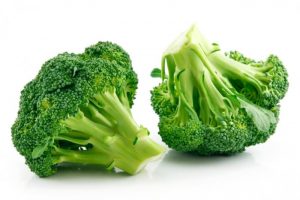 Three recently published scientific studies reinforce the protective power of sulforaphane, the naturally-occurring antioxidant in broccoli and broccoli sprouts by demonstrating three new aspects of disease prevention by sulforaphane. Studies on sulforaphane (SGS) in human cell lines and laboratory animals show its potential effect on hypertension, prostate cancer and macular degeneration.
Three recently published scientific studies reinforce the protective power of sulforaphane, the naturally-occurring antioxidant in broccoli and broccoli sprouts by demonstrating three new aspects of disease prevention by sulforaphane. Studies on sulforaphane (SGS) in human cell lines and laboratory animals show its potential effect on hypertension, prostate cancer and macular degeneration.
The studies, reported in late 2001 by scientists from Johns Hopkins, Stanford University and the University of Saskatchewan, give new significance to the potential health benefits of sulforaphane, the antioxidant phytochemical originally isolated from broccoli, and now available to consumers as Fortified Flax Hulls with Broccoli Sprouts.
In a series of experiments, rats with high blood pressure (hypertension) that were treated with sulforaphane showed a significant reduction in the tendency to develop artery-narrowing plaques. Working with rats that develop high blood pressure, Dr. Bernard Juurlink at the University of Saskatchewan, in Saskatoon, Canada, demonstrated that sulforaphane retards oxidative damage leading to arterial occlusion, a potentially significant breakthrough in proactive therapies against blocking of arteries. Sulforaphane may, therefore, interrupt the progression of plaque development to strokes.
Dr. Paul Talalay and his colleagues at Johns Hopkins (Dr. Talalay first demonstrated the efficacy of sulforaphane as an antioxidant in protecting against cancers) describe new studies showing that treatment with low concentrations of sulforaphane protects human retinal (eye) cells against a variety of severe oxidative challenges. As humans age, the defenses of their cells are known to decline. In the retina, this can lead to macular degeneration, the principal cause of deterioration of vision among the aged.
Dr. Talalay’s latest studies confirm that the protective effects of sulforaphane are large, long-lasting and effective against various types of oxidative stress. These protective effects persist for several days, continuing to reinforce the body’s natural defense mechanisms.
Human prostate cancer cells responded well to treatment with sulforaphane in the form of broccoli sprout extracts by showing dramatic increases in their protective Phase 2 enzymes. In his article, Dr. James D. Brooks of the Urology Department at Stanford suggests, “Intervention trials may be warranted [in humans], and broccoli sprouts, a rich natural source of sulforaphane, may be appropriate for use in such a trial.”
Dr. Talalay commented that continuing research on sulforaphane opens new vistas on the impact of naturally-occurring antioxidants. “We know sulforaphane raises the activities of Phase 2 enzymes that inactivate carcinogens. That’s one of its strongest attributes. If we can translate those attributes to prevent other chronic degenerative conditions, that will be a highly significant advance.”
The Stanford studies actually used broccoli sprouts to elicit the protective effects in the scientific experiments involving prostate cancer intervention.
It is important to point out that these studies involved animals and human cells in the laboratory, but the stage is now set for human trials to assess the further protective qualities of sulforaphane against a variety of life-challenging medical conditions.
The studies are as follows:
“Powerful and prolonged protection of human retinal pigment epithelial cells, keratinocytes, and mouse leukemia cells against oxidative damage: the indirect antioxidant effects of sulforaphane.” Proceedings of the National Academy of Science USA, Vol. 98, pp. 15221-15226, 2001. http://www.pnas.org/cgi/doi/10.1073/pnas.261572998
“The impaired glutathione system and its up-regulation by sulforaphane in vascular smooth muscle cells from spontaneously hypertensive rats.” Hypertension, Vol. 19, pp. 1819-1825, 2001. http://www.jhypertension.com/pt/re/jhypertension/abstract.00004872-200110000-00016.htm
“Potent induction of Phase 2 enzymes in human prostate cells by sulforaphane.” Cancer Epidemiology, Biomarkers & Prevention, Vol. 10, pp. 949-954. Sept. 2001. http://cebp.aacrjournals.org/cgi/content/abstract/10/9/949

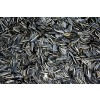
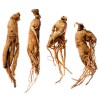


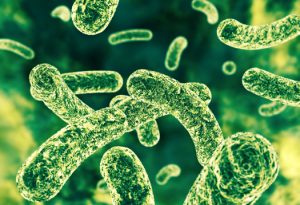
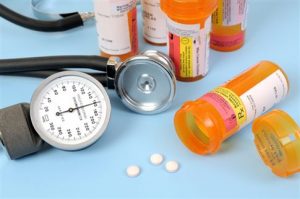
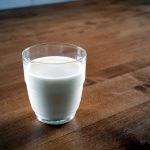

Αφήστε ένα σχόλιο